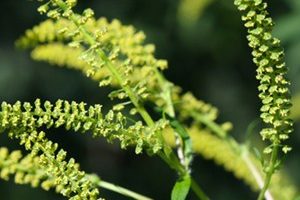
For more than a year, COVID-19 has been circulating widely throughout the world. As springtime rolls around again, more and more people are wondering how they can tell the difference between ordinary seasonal allergies and the early symptoms of COVID-19. Here’s what you need to know about the differences between COVID-19 and allergy symptoms.
What Symptoms Define Early COVID-19?
One of the most difficult things about COVID-19 is the fact that it can have such a broad range of symptoms and severity levels. The most common symptoms of the disease include fever, fatigue and a dry cough. In many cases, people suffering from COVID-19 also experience loss of taste or smell, which is one of the tell-tale symptoms of the disease.
Does COVID-19 Share Any Symptoms With Seasonal Allergies?
There are some symptoms of COVID-19 that also occur as a result of seasonal pollen allergies. Congestion, coughing and headaches are all symptoms the two conditions can share. Unfortunately, this can make it difficult to distinguish between early, mild symptoms of COVID-19 and ordinary allergies.
How Can You Tell the Difference?
The most critical symptom for distinguishing between allergies and COVID-19 is the presence of a fever. Allergic reactions don’t produce fevers, but about 99 percent of COVID-19 cases do. If your cough or headache is associated with a new fever, it’s important to contact your medical provider to discuss proper testing and quarantine measures.
Sneezing is also a major factor in distinguishing between the two. Sneezing generally isn’t associated with COVID-19, but it’s an extremely common symptom of allergies. If you are sneezing and aren’t running a fever, there’s a very good chance you’re just experiencing seasonal allergic reactions. If your symptoms include a fever, fatigue or loss of taste or smell, contact your medical provider immediately.
If in doubt, it’s still best to contact your medical provider to ask about your symptoms and discuss the possibility of scheduling a COVID-19 test. Even though vaccines are now being distributed and the pandemic seems to be coming under control, it’s still very important to remain vigilant and take all necessary precautions to slow the spread of the disease.
Air Purifiers for COVID-19 and Allergies
In addition to some shared symptoms, COVID-19 and allergies have one other thing in common: both of them can be combated with HEPA air purifiers. HEPA filters have long been used to remove pollen in home air as a way of keeping seasonal allergies under control. More recently, research has shown that HEPA filters are capable of capturing virus-sized particles, making them an important tool in the fight against COVID-19.
To learn more, check out our blog post about air purifiers for coronavirus, as well as our complete lineup of air purifiers for allergies.
Have questions about how air purifiers can help you keep your home air clean and healthy? We’re here to help! Feel free to contact us with your questions, and we’ll be happy to provide you with answers and personalized product recommendations based on your unique needs.